Art & Exhibitions
What Was Life Like in the Roman Army? The British Museum’s New Show Offers a Peek
"Legion" showcases objects including scabbards, coins, and the world's only intact legionary shield.
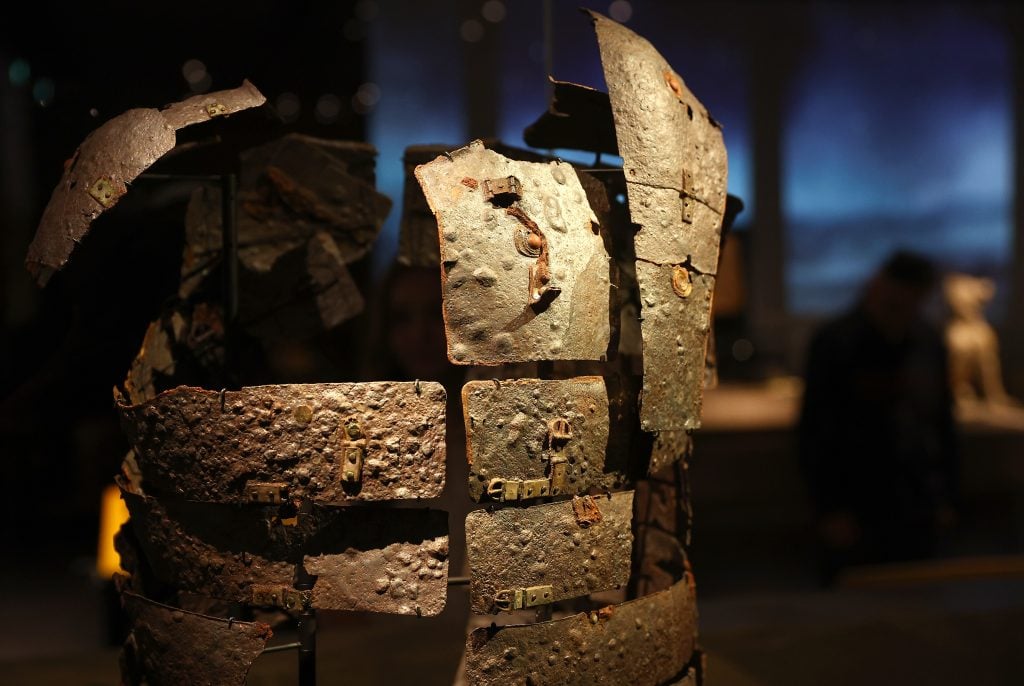
The viral nature of the term “Roman Empire” makes it easy to forget the trend started because ancient Rome had one of the most unforgettable armies in history. A new show at the British Museum is turning the spotlight on the soldiers that helped build and safeguard Roman rule.
“Legion: Life in the Roman Army” transports visitors to the million square miles that was once the Roman Empire to explore its unparalleled military might through the eyes of the people who lived it. The museum already has a dedicated gallery space covering the rise of Rome from a small town to an imperial capital, covering a period of about 1,000 years. But the latest show humanizes that collective power through more than 200 exhibits ranging from soldierly objects to everyday items that capture the lives of citizens living under military rule.
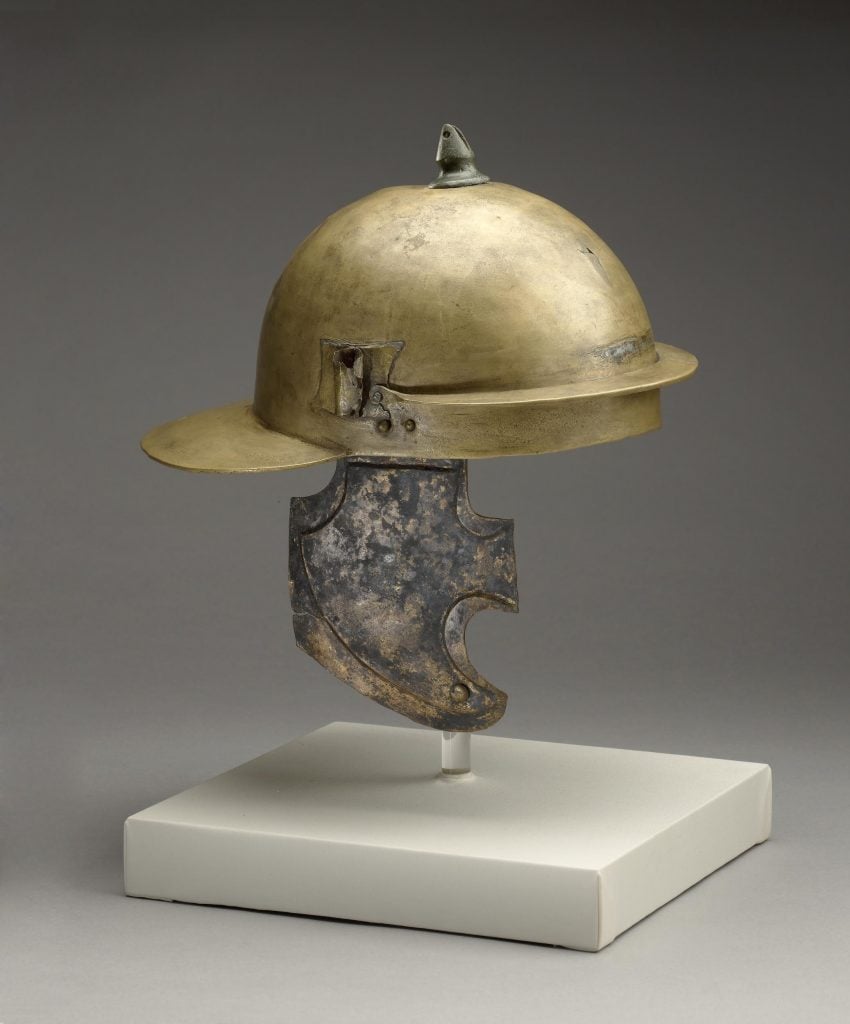
Copper alloy Roman legionary helmet. © The Trustees of the British Museum. Photo courtesy of the British Museum.
“Few men are born brave,” wrote Vegetius in the later Roman Empire. “Many become so from care and force of discipline.” From the 6th century B.C.E., soldiering was a career choice and joining the army came with substantial perks (if you lived), including a substantial pension. Foreigners entering the auxiliary troops could also attain citizenship for themselves and their families.
The show traces the journey of a notable Roman soldier, Claudis Terentianus, following him from his enlistment to his participation in campaigns to his retirement. Along the way, visitors can view the armor and weapons soldiers wielded in battle, from a gilded bronze scabbard to a copper alloy helmet to the world’s only intact legionary shield. Domestic objects such as children’s shoes illustrate the family life of military men; coins and tombstones allude to the cost of the empire’s wars.
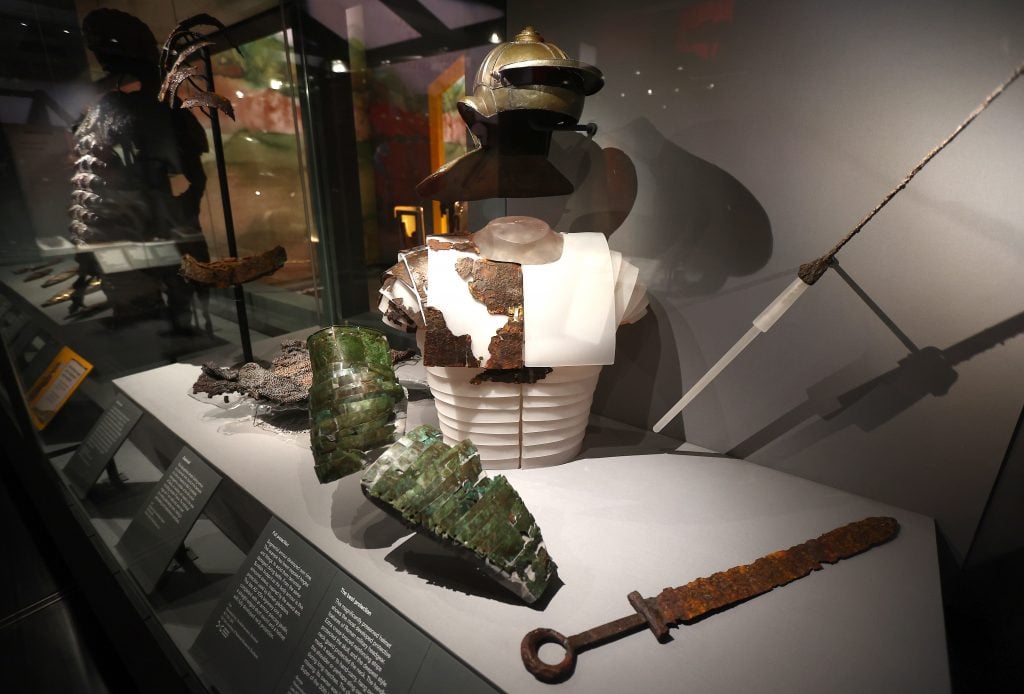
Installation view of “Legion: Life in the Roman Army” at the British Museum. Photo: Peter Nicholls/Getty Images.
Also included in the show is an ancient Roman arm guard, found in fragments in 1906 and recently reconstructed by the National Museums Scotland—the first time the artifact can be viewed in its entirety in millennia.
“Sword and sandals, helmet and shield are all on parade here as would be expected, but told through often ordinary individuals,” Richard Abdy, the museum’s curator of Roman and Iron Age coins, said in a statement. “Every soldier has a story: it’s incredible that these tales are nearly 2,000 years old.”
See more images from the show below.
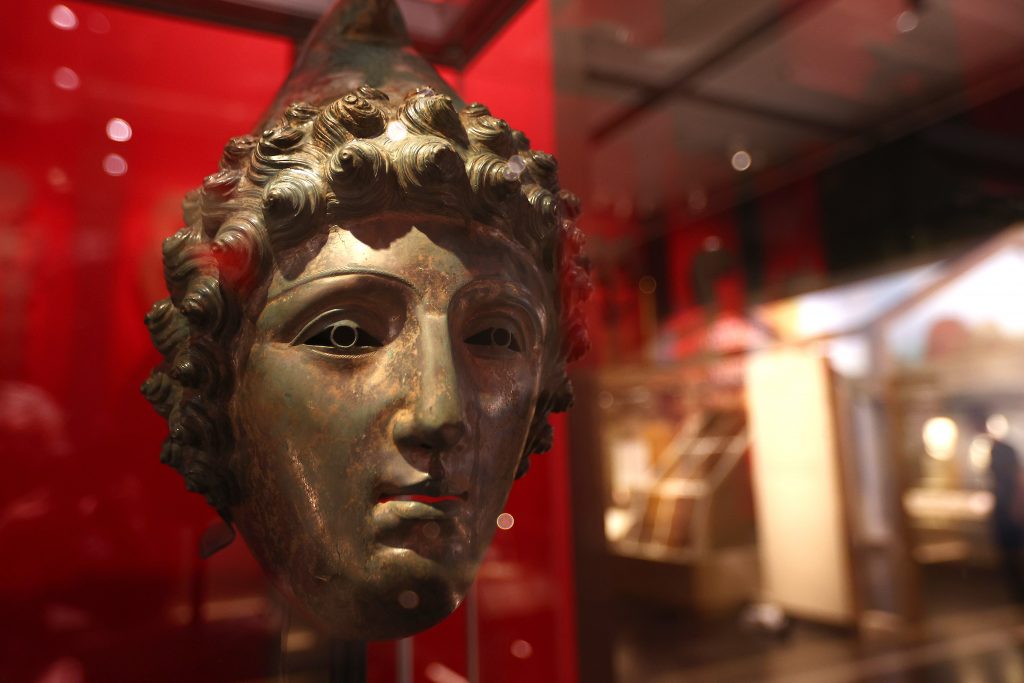
A helmet depicting the face of a Trojan, on view at “Legion: Life in the Roman Army” at the British Museum. Photo: Peter Nicholls/Getty Images.
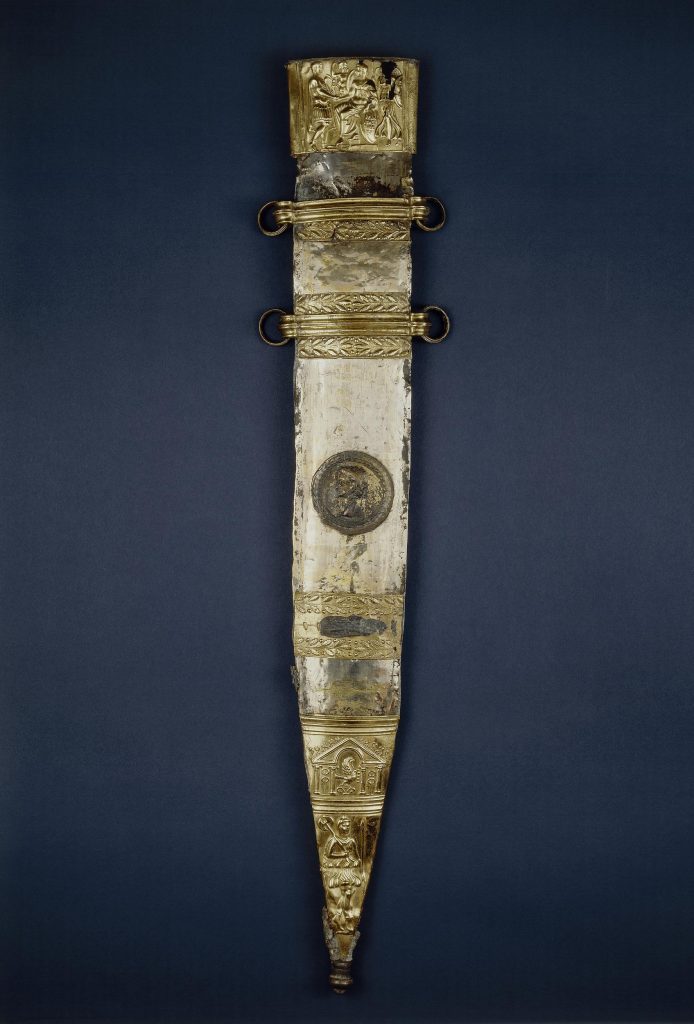
Sword of Tiberius – Iron sword with gilded bronze scabbard. Photo courtesy of the British Museum.
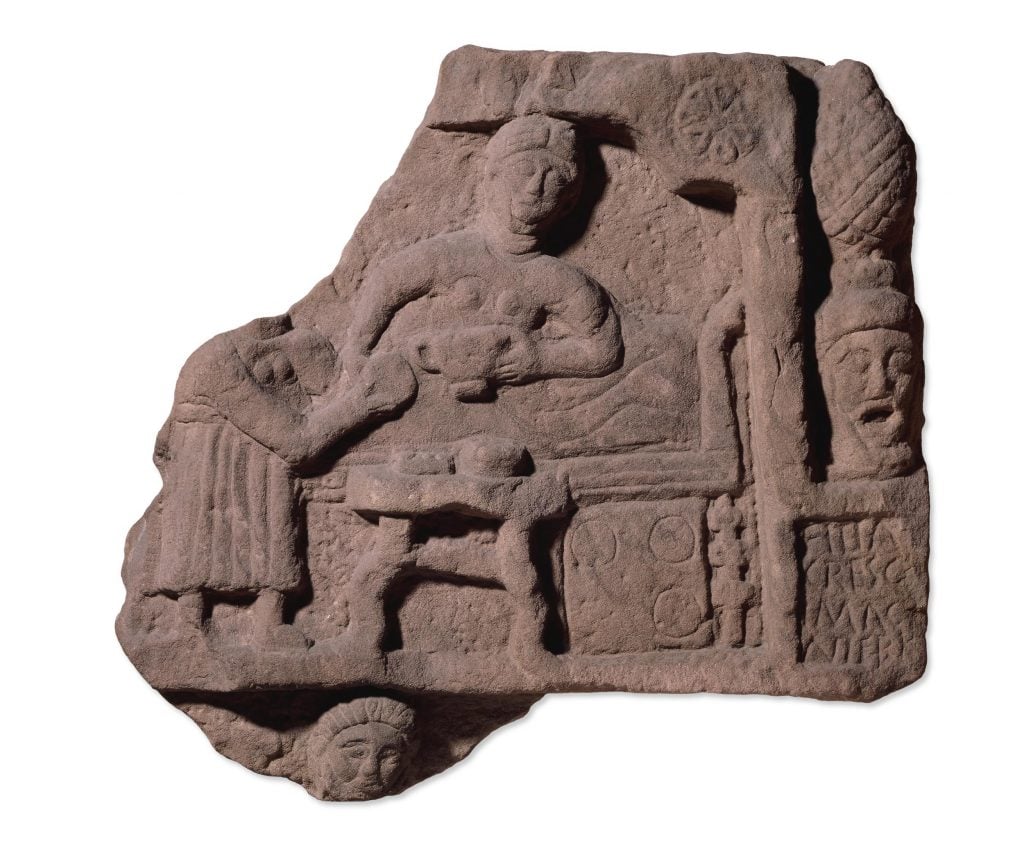
Tombstone of an imaginifer’s daughter, 100-300 C.E. © The Trustees of the British Museum. Photo courtesy of the British Museum.
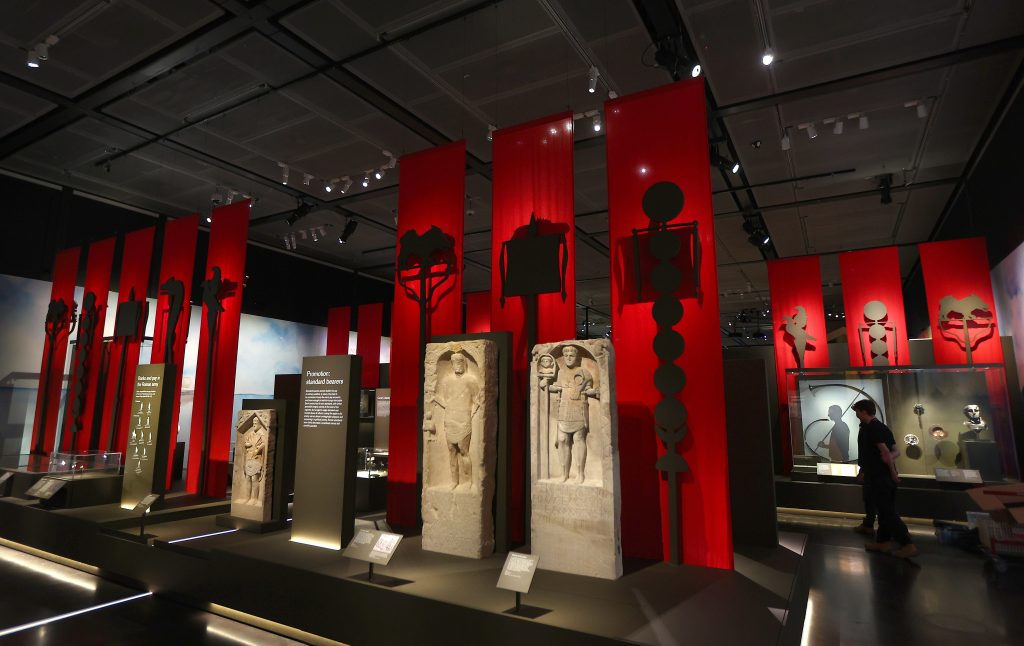
Installation view of “Legion: Life in the Roman Army” at the British Museum. Photo: Peter Nicholls/Getty Images.
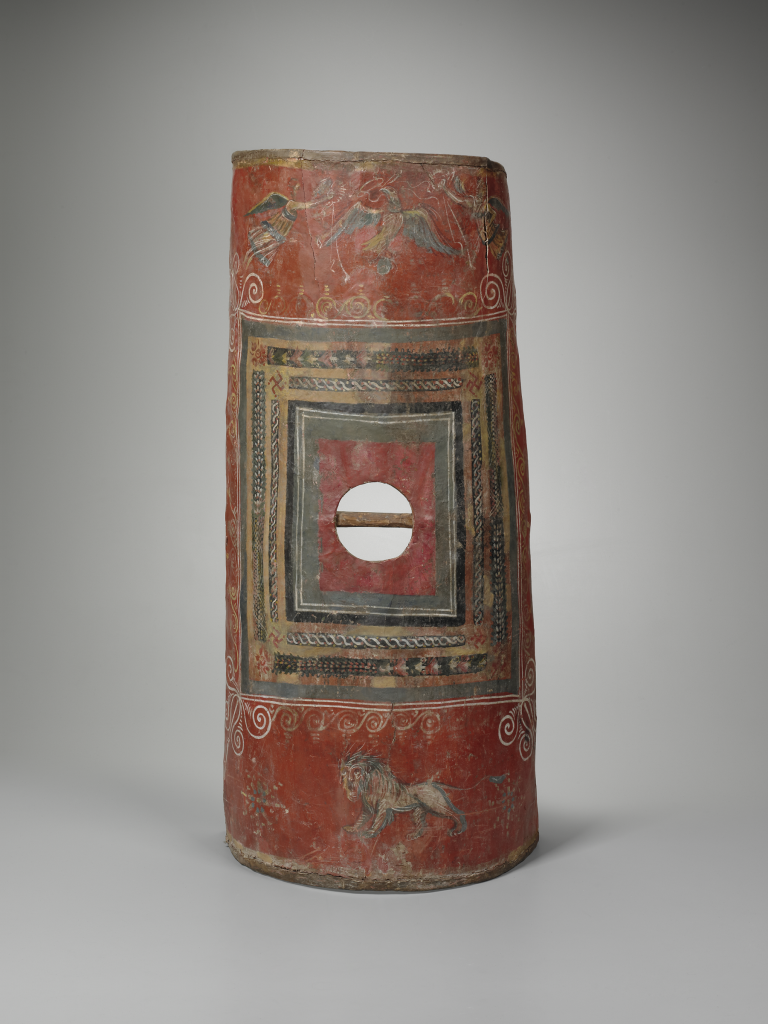
Roman scutum (shield). Yale University Art Gallery, Yale-French Excavations at Dura-Europos. Photo courtesy of the British Museum.
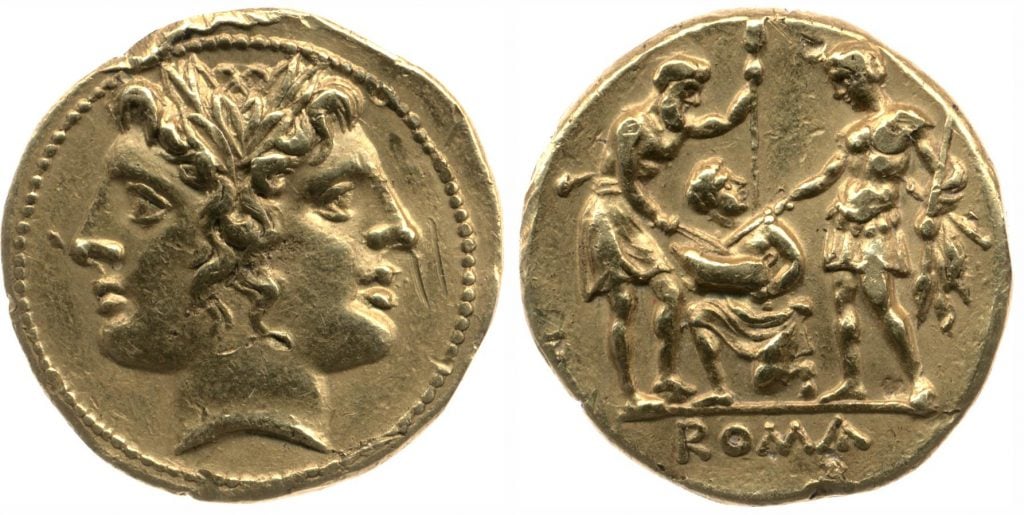
Gold coin featuring an oath-taking scene between two soldiers. © The Trustees of the British Museum. Photo courtesy of the British Museum.
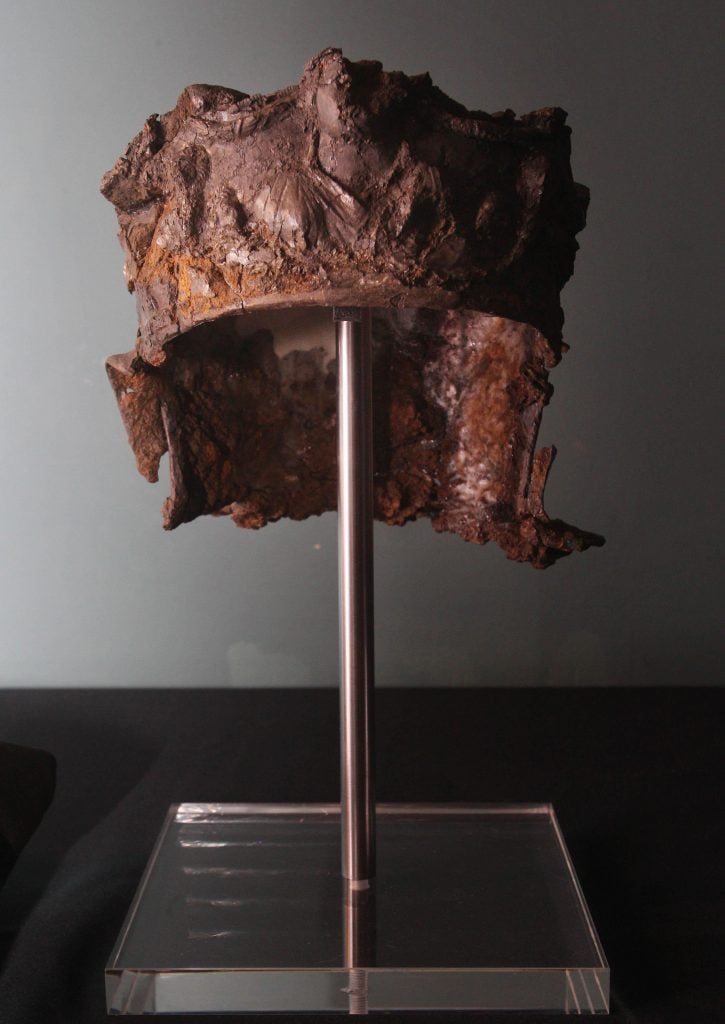
A 2,000-year-old Roman cavalry helmet, on view at “Legion: Life in the Roman Army” at the British Museum. Photo by Lewis Whyld/PA Images via Getty Images.
“Legion: Life in the Roman Army” is on view at the British Museum, Great Russell Street, London, through June 23.





